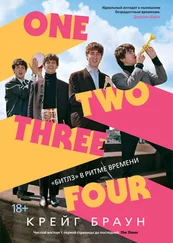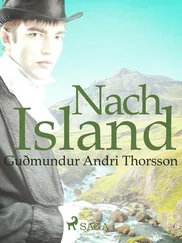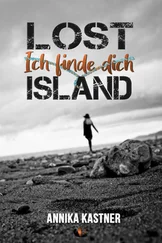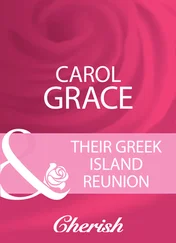That was when the doctor’s wife explained that after Karin and her fiancé got married at the end of August there would be an empty bedroom in the family’s apartment in Göteborg. They just happened to live very close by the girls’ grammar school, and Stephie was welcome to lodge in the room. She wouldn’t have to pay for anything but her meals. There were grants they could apply for, too, to cover the cost of books and other school supplies.
Aunt Märta thanked the doctor’s wife and asked if she could think the matter over. She wanted to talk to Evert about it when he came back from his fishing trip.
All the next week, Stephie went out of her way to be even nicer and more helpful than usual. She didn’t know whether that was what clinched it, but in the end Aunt Märta and Uncle Evert said yes.
The doctor’s wife promised to arrange for Stephie to be registered at the girls’ grammar school, even though it was already past the deadline. The headmistress was a friend of hers. Miss Bergström lent Stephie the math book again. Stephie had to work on her own, but Miss Bergström promised to help her if she got stuck.
“What if you and Sylvia end up in the same class again?” Vera asks.
“That won’t bother me at all,” Stephie replies.
She isn’t bragging. Ever since that morning in the shopkeeper’s yard, she’s felt that Sylvia can do her no harm.
“No, I guess she won’t rule the roost at the grammar school, anyway,” Vera says. She’s quiet for a few minutes, before adding softly, “And in town you’ll make new friends. City girls.”
“Right,” says Stephie. “I hope so. But you’re my best friend, whatever happens.”
When she hears herself say that, she feels a tweak at her heart. It’s been weeks since she wrote to Evi.
“You and Evi,” she adds quickly.
“Who’s Evi?”
“My best friend in Vienna. We met in first grade. We always sat next to each other in class.”
“Do you miss her?
“Mmm, sometimes.”
“And your parents?”
“Oh, yes.”
“I miss my father,” Vera tells her.
Vera’s father is dead. He drowned before Vera was born. He and Vera’s mother hadn’t even gotten married yet.
“It’s really strange to think about Mamma and Papa and Evi and all the other people back at home,” Stephie says. “To imagine them walking on the same old streets, while I’m here.”
“Would you rather be there?”
“I’d rather they were here.”
“Couldn’t they come?”
“I’m not sure. The doctor’s wife has promised to write to someone who might be able to help us.”
Stephie shuts her eyes tight. In the bright sunlight, the blood vessels on the inside of her eyelids shimmer. It’s very hot. She sits up.
“Come on, let’s have a swim,” she says.
The water is crystal clear. You can see straight down to the bottom. Dark green strips of seaweed bobble at the water’s edge. Stephie picks one up, pushing on the yellowish bubbles till they burst with a popping sound. The seaweed is known as bladder kelp, but the children call it bubble kelp.
“Dip or dive?” Vera asks.
“Dive,” says Stephie.
They climb up the diving rock and gaze out over the surface of the water. You have to be careful not to land right on a stinging jellyfish. Stephie had bad luck once, and got red hives all over her chest and arms.
They see one big orange one floating a couple of yards from their diving rock.
“We’ll have to jump left,” Vera says. “They have such long tentacles.”
“I’ll go first,” says Stephie, taking a deep breath and holding her nose. Taking a running jump, she splashes into the water.
Eyes open, she sinks into the shimmering green depths. For an instant her body hovers, weightless. Then she comes panting up to the surface, just in time to see Vera plunge from the rock.
It’s been a hot summer. Now that it’s August, the water’s so warm you can stay in as long as you like and not get cold.
They take turns diving for stones on the bottom. As they’re clambering up over the rocks to get out, Stephie scrapes one knee on a barnacle, a sharp-edged shell that attaches to the rocks, just below the surface.
Her knee bleeds a little. Stephie examines her legs, covered with bruises, scrapes, and scratched-open mosquito bites. The skin on the bottoms of her feet has grown thick and hard from walking barefoot.
She’s different now from the girl she was a year ago, when she arrived on the island. It shows.
Stephie and Vera lie in the sun to dry, then put on their clothes. There’s a thin layer of salt from the water on Stephie’s tan skin. She licks one of her arms for the salty taste.
Nellie and Sonja are splashing in the water at the shore.
“Hey, Stephie,” Nellie shouts. “Watch me swim!”
Nellie’s just learned; she can do both the crawl and the breaststroke. She tumbles in the water like a chubby dolphin.
Stephie’s and Vera’s bikes are parked just above the beach. Stephie’s gleams red in the sun, as shiny as it was when she got it a few weeks ago for her thirteenth birthday. It was standing outside the basement door when she woke up in the morning. Her very own bicycle.
When they reach the main road, Vera asks, “Is it all right if I come home with you? We can rinse each other’s hair under the pump.”
“Sure,” Stephie replies.
They bike on the path that leads through the thicket and up the long hill. Stephie stops at the top.
“What’s the matter?” Vera wonders. “It’s all downhill from here.”
Stephie doesn’t answer. She stares out across the ocean, to where the sky and water meet in the west. Somewhere beyond the horizon there’s more land. Next year, on Easter Eve, there will be bonfires on islands she can’t see today, although the weather is beautiful. The islands are out there, and so is the mainland.
America is there, too, a mirage on the other side of the Atlantic. Norway, however, occupied by the Germans, is much too near. Vienna, where Mamma, Papa, and Evi are, is much too far away. Aunt Märta is in the white house at the bottom of the hill, along with Uncle Evert, the doctor’s wife, and Sven. Beside her, there’s Vera.
Stephie’s not at the end of the world. She’s on a faraway island, but she is not alone.
“Come on,” she says to Vera. “Last one down the hill’s a rotten egg!”
I was born into a Jewish family in Göteborg, on the west coast of Sweden, nearly sixty years ago. Early on I understood how fortunate I was that my parents had grown up in Sweden-and not in Germany (where my mother was born), or in Belarus (from where my grandparents on my father’s side fled to Sweden in the early 1900s), or in Austria or Holland or France or even Norway: had they spent World War II in any of those places, they would probably not have survived the war. I might never have been born at all.
As a child I used to look through my mother’s photo album. There were pictures of relatives I had never met, including her father’s grandparents, aunts, uncles, and cousins. Some of them were living in the United States, Israel, or Brazil; others had perished during the war. Nobody would tell me how they had died, but of course it wasn’t long until I understood.
I didn’t have much extended family in Sweden on my mother’s side, only her two cousins, who were about her age and had come to Sweden all alone, thanks to my grandfather’s efforts; his business had brought him to Göteborg as early as the 1920s.
My mother’s cousins were among the few Jewish refugees from Nazi Germany who were granted asylum in Sweden. Like so many other countries, Sweden at first closed its borders to the hundreds of thousands of German and Austrian Jews lining up outside embassies and consulates to obtain an entry visa to another country. But after Kristallnacht in November 1938, when the Nazis burned down so many synagogues, pillaged and vandalized Jewish shops, and rounded up thousands of people for deportation to concentration camps, the small Jewish congregations in Sweden pleaded with the government and managed to arrange for five hundred children from Germany, Austria, and Czechoslovakia to be brought to Sweden. Adult Jews, however, were still to be kept out of the country.
Читать дальше











